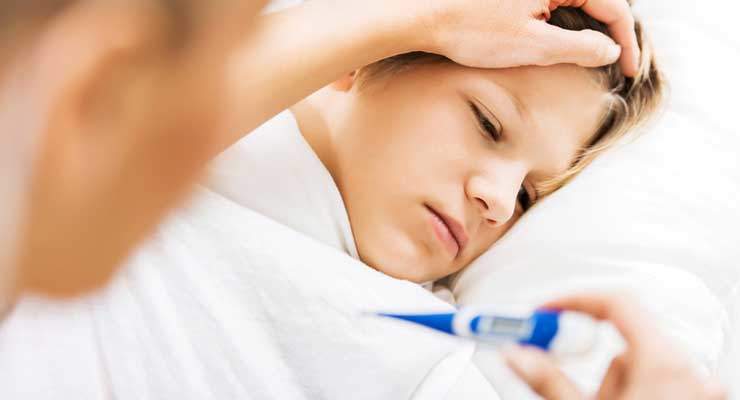During challenging physical conditions and situations, the body undergoes temperature changes. For instance, the body shows signs and symptoms that trigger the natural body defenses against dreaded diseases. Chills often predict the coming of a fever or an increase in body temperature. The body tries to generate heat when it feels cold through rapid contraction and relaxation that can cause chills. When fever manifests, the body’s temperatures reaches one or two notches higher than 98.6 degrees Fahrenheit and may indicate an infection or illness.
Types of Illnesses that Cause Chills and Fever
Several diseases and conditions, whether combined with extremely cold weather and poor nutrition, may cause night chills and fevers. Still’s disease, a form of rheumatoid arthritis, can cause high spiking fevers, as do cancers of the blood and lymph nodes. Acquired Immune Deficiency Syndrome (AIDS) can cause night chills with fever due to weakened immune system. In most cases, bacterial infections, such as pneumonia, cause fevers and night chills. Ear infections in young children can lead to low-grade fevers while other infectious diseases, such as measles, pneumonia, malaria, tuberculosis and meningitis, can cause fevers with chills. In addition, fevers and chills may indicate inflammatory disorders, such as appendicitis and other gastrointestinal issues. Fevers and night chills may also indicate viral infections, such as Reye’s syndrome and influenza. Certain parasites can cause malaria, an infection of the blood transferred through a mosquito bite, can also cause fever accompanied by shaking chills.
Treatments
In most cases, fevers and night chills can go away without intervention. While home remedies that include drinking plenty of water and freshly squeezed juices or sipping hot soup can offer temporary immediate relief, you may need to administer additional treatments and medications to treat fevers and chills. Over-the-counter medications, such as acetaminophen or ibuprofen, can help alleviate fevers and chills caused by viral infections that extend for days or weeks. In the cases of bacterial infections, penicillin and other antibacterial-fighting medications can help cure the infection, thus help lowering the fevers and stopping the night chills.
Fever and Night Chills in Children and Adults
The body reacts to fevers and chills, depending on the body’s threshold and stamina. Most children develop high fevers and night chills upon exposure to minor viral agents and diseases. In general, children tend to develop higher fevers than adults. Although prone to fevers, infants do not have the tendency to develop night chills. When teething or after vaccination, infants may develop low-grade fever; however, if you’re unsure of the cause, always consult your doctor.
Preventive Measures
Cleanliness can prevent the spread of virus and bacteria that can cause fevers and chills. Frequent washing of hands will help stop the infection from spreading. Use disinfectants when cleaning your home, especially items that you and members of your family often touch. Bringing your own hand sanitizer and using your own eating utensils can save you from potential infection when you’re away from home. Get plenty of rest, exercise regularly and maintain proper diet and hygiene to make your body stronger against infection. Make sure you and your children have up-to-date immunization. Immunizations help boost the body’s defenses against illnesses.
Warning
Call your doctor or take your baby immediately to the hospital in case of a fever of 104 degrees Fahrenheit and higher. While fevers can indicate the body’s defensive response to diseases, in worst cases, they can also cause convulsions, or febrile seizures, among children. Brain damage may occur if a temperature shoots up to more than 107.6 degrees Fahrenheit. Consult your doctor for fevers of undetermined origin that last for days or even weeks to determine the root cause and get proper treatment.






